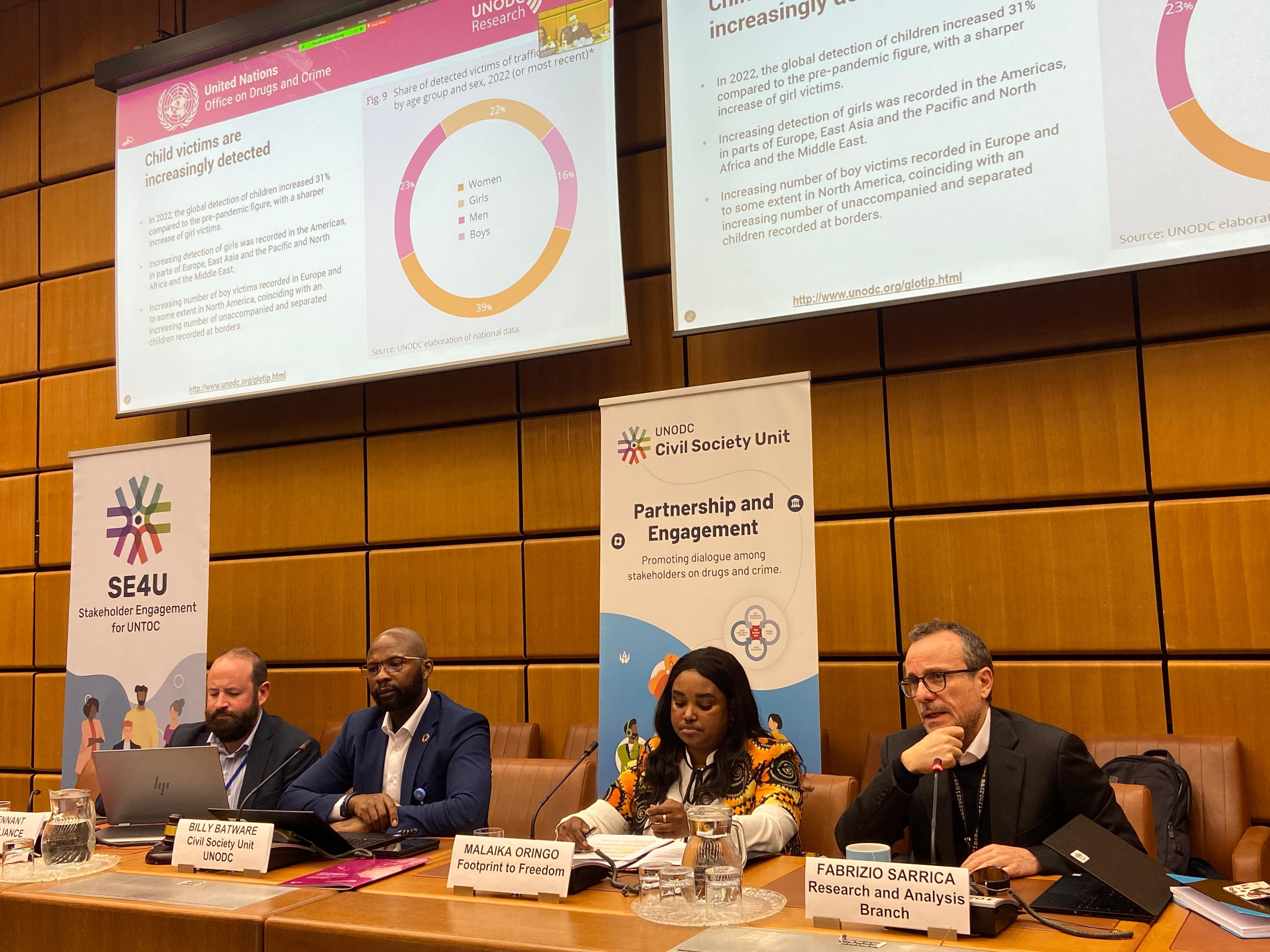Presentation of the 2024 Global Report on Trafficking in Persons to Civil Society
Ian Tennant, Chair of the Alliance, shared insights on the importance of the report for the governments and civil society. He commented on the concerning increase in the percentage of victims and the need to support survivors by reintroducing them to the labor market, stressing the central role played by the civil society and the governments. The Chair talked about how international NGOs should consider that corruption, impunity, and misinformation on who is behind the criminal acts are facilitating factors for trafficking crimes, and he shared the importance of prevention through discussion and education of the population on these issues.
Fabrizio Sarrica, Research Officer for the UNODC, currently serving as team leader for the UNODC research on trafficking in persons, shed light on the structure of the Global Report. The dataset used by researchers was gathered from around 1100 conviction cases over a span of 20-years. The Report shows trends in the capacity of NGOs to assist and identify victims and the ability of the criminal justice system to finalize convictions, related to the Covid-19 pandemic and varying depending on world regions. Data analysis further identified victim profiles, reasons for trafficking, and modus operandi of traffickers.
This edition of the Global Report included a special chapter dedicated to the African continent. Through the data gathered from 40 African countries, it emerged that most of the victims detected are trafficked into the continent. They are mostly children destined to child labor, and people involved in the smuggling of migrants. Mr. Sarrica also mentioned the impact of climate change on human trafficking in this region, as human mobility is seen as the only way to survive, exposing people to trafficking, early marriages or child labor as means of displacement.
Malaika Oringo, founder and CEO of Footprint to Freedom, a survivor-led organization combating trafficking in persons and member of the International Survivors of Trafficking Advisory Council (ISTAC), stressed the crucial importance of empowering survivors and allowing them not only to have a voice against trafficking, but to also receive economic support and mental health assistance. Ms. Oringo shared insights on the difficulty of survivors to recover during the Covid-19 pandemic years, and stressed the importance of the role played by embassies in survivor support, advising for more coordination and investments on survivor-led education, especially in rural areas of the African continent, where the population is vulnerable due to normalization of the phenomenon, lack of political empowerment, conflicts, and inadequate digital education, which favors online exploitation.
Darren Brookbanks from GI-TOC, explained how through a thorough analysis of cold cases, it is possible to obtain the percentages of the different types of traffickers and understand how they are related to organized criminality, identifying operatively structured organizations and unstructured criminal groups in business, which can facilitate and reduce conviction times.
13 Jan, 2025
